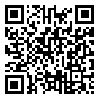Volume 13, Issue 2 (4-2025)
J. Pediatr. Rev 2025, 13(2): 161-168 |
Back to browse issues page
Download citation:
BibTeX | RIS | EndNote | Medlars | ProCite | Reference Manager | RefWorks
Send citation to:



BibTeX | RIS | EndNote | Medlars | ProCite | Reference Manager | RefWorks
Send citation to:
Eghbalian F, Bahariani A, Najafi-vosogh R, Naderifar H. Investigating the Effect of Physical Activities on Social Skills in Athletes and Non-athletes Deaf and Hard of Hearing Students. J. Pediatr. Rev 2025; 13 (2) :161-168
URL: http://jpr.mazums.ac.ir/article-1-690-en.html
URL: http://jpr.mazums.ac.ir/article-1-690-en.html
1- Hearing Disorders Research Center, Hamadan University of Medical Sciences, Hamadan, Iran.
2- Research Center for Health Sciences, Hamadan University of Medical Sciences, Hamadan, Iran.
3- Hearing Disorders Research Center, Hamadan University of Medical Sciences, Hamadan, Iran. ,Hnaderifar121@gmail.com
2- Research Center for Health Sciences, Hamadan University of Medical Sciences, Hamadan, Iran.
3- Hearing Disorders Research Center, Hamadan University of Medical Sciences, Hamadan, Iran. ,
Abstract: (1636 Views)
Background: Hearing loss and deafness can significantly impact the socialization process, potentially leading to developmental delays, communication challenges, and difficulties in forming social relationships.
Objectives: This study compares social skills among deaf students who are athletes and non-athletes. In addition, it investigates the effect of physical activities on social skills in deaf and hard-of-hearing students.
Methods: This cross-sectional study included all deaf and hard-of-hearing students between the ages of 12 and 17 years. The students were categorized into two groups based on their participation in sports activities, namely athletes and non-athletes. The researchers used Matson’s social skills questionnaire to assess the students’ social skills and their various dimensions.
Results: The Mean±SD age of student-athletes and non-athletes was 15.83±1.97 and 17.08±2.12 years, respectively. The findings indicated a significant difference between the mean of appropriate social skills, antisocial behaviors, aggressiveness, impulsive behaviors, feelings of superiority, high self-confidence, and peer relationships between deaf and hard-of-hearing students who are athletes and non-athletes.
Conclusions: Sports can serve as a valuable avenue for deaf and hard-of-hearing children to foster understanding and interaction among themselves. Engaging in sports activities may enhance their social skills.
Objectives: This study compares social skills among deaf students who are athletes and non-athletes. In addition, it investigates the effect of physical activities on social skills in deaf and hard-of-hearing students.
Methods: This cross-sectional study included all deaf and hard-of-hearing students between the ages of 12 and 17 years. The students were categorized into two groups based on their participation in sports activities, namely athletes and non-athletes. The researchers used Matson’s social skills questionnaire to assess the students’ social skills and their various dimensions.
Results: The Mean±SD age of student-athletes and non-athletes was 15.83±1.97 and 17.08±2.12 years, respectively. The findings indicated a significant difference between the mean of appropriate social skills, antisocial behaviors, aggressiveness, impulsive behaviors, feelings of superiority, high self-confidence, and peer relationships between deaf and hard-of-hearing students who are athletes and non-athletes.
Conclusions: Sports can serve as a valuable avenue for deaf and hard-of-hearing children to foster understanding and interaction among themselves. Engaging in sports activities may enhance their social skills.
Type of Study: Original Article |
Subject:
Pediatric Psychology
Received: 2024/10/15 | Accepted: 2025/01/27 | Published: 2025/04/1
Received: 2024/10/15 | Accepted: 2025/01/27 | Published: 2025/04/1
Send email to the article author
| Rights and permissions | |
 |
This work is licensed under a Creative Commons Attribution-NonCommercial 4.0 International License. |









